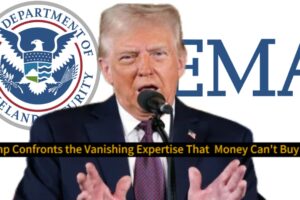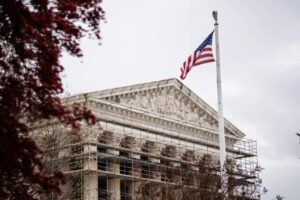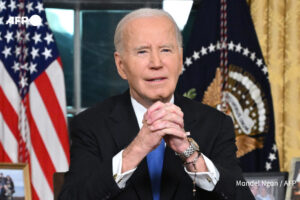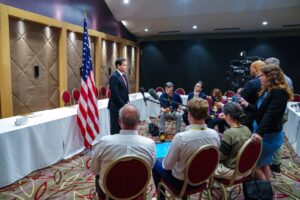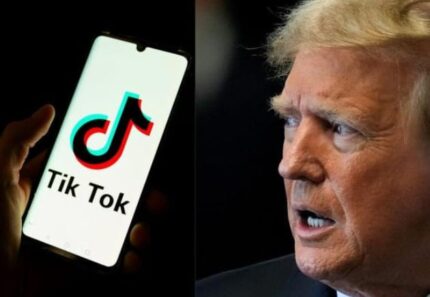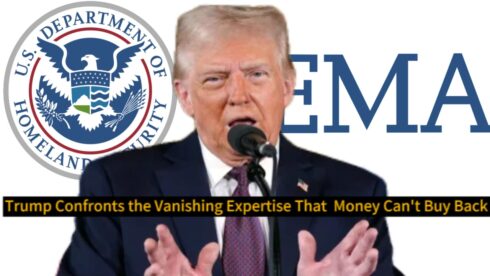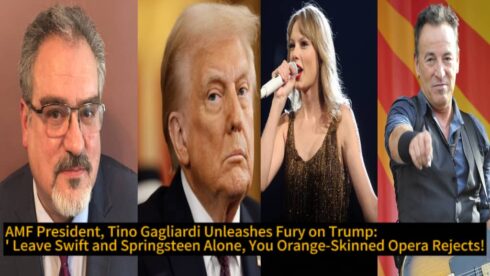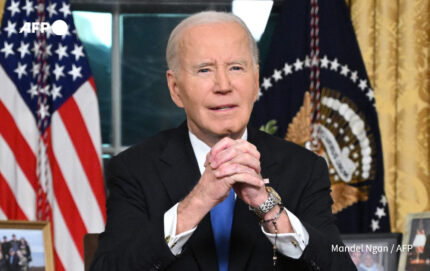TikTok has resumed operations for its 170 million American users after President-elect Donald Trump announced his intention to delay the enforcement of a new law banning the platform. The move marks a significant reversal for Trump, who had previously supported restrictions on the Chinese-owned app over national security concerns.
TikTok Briefly Goes Dark Amid Legal Uncertainty
On Saturday evening, TikTok ceased functioning for American users following the enforcement of a law requiring its removal from app stores and web-hosting services. The legislation, which was passed in April 2024 with bipartisan support, mandated that ByteDance, TikTok’s Chinese parent company, divest its U.S. operations or face a ban. The Supreme Court upheld the law on Friday, paving the way for its implementation.
Despite the legal ruling, TikTok remained hopeful for a resolution. The Biden administration had already signaled that it would not enforce the ban in its final hours, leaving the decision to Trump. However, TikTok preemptively shut down its services on Saturday, only to restore them swiftly after Trump’s promise of intervention on Sunday. The platform issued a message thanking the incoming president for his commitment to finding a “long-term solution” that would allow TikTok to continue operating in the U.S.
Trump’s Executive Order and His Change of Stance on TikTok
Donald Trump’s announcement of an executive order to extend the timeframe for TikTok’s compliance represents a stark shift in his position. While he previously endorsed banning the app over national security concerns, he now acknowledges the platform’s massive influence, particularly among younger voters. During his 2024 campaign, Trump leveraged TikTok’s vast user base, boasting billions of views on his content.
Posting on Truth Social, Trump emphasized his intent to keep TikTok accessible while ensuring U.S. national security is protected. “I’m asking companies not to let TikTok stay dark! I will issue an executive order on Monday to extend the period of time before the law’s prohibitions take effect, so that we can make a deal,” he stated. The specifics of his legal authority to override the law remain unclear, but expectations are that his administration will delay enforcement until further negotiations occur.
Political Divisions Over TikTok’s Future
The decision to grant TikTok a reprieve has deepened divisions within Trump’s own party. Many Republican lawmakers view TikTok as a national security threat due to its ties to China, with some officials calling for strict enforcement of the ban. Trump’s pick for Secretary of State, Senator Marco Rubio, has been an outspoken critic of the platform, warning that it extends the Chinese Communist Party’s influence into the U.S.
Despite his past opposition, Rubio seemed to defer to Trump when questioned about the president-elect’s reversal. “If I’m confirmed as Secretary of State, I’ll work for the president,” he told Punchbowl Media. His remarks suggest that while concerns over TikTok persist, the incoming administration is prioritizing negotiations over immediate enforcement.
TikTok’s Legal Battle and Its Role in American Politics
TikTok has consistently challenged the ban, arguing that it violates First Amendment free speech protections. The platform filed lawsuits contesting the legislation, emphasizing its importance in modern political discourse. Many politicians, including those in both major parties, have used TikTok as a campaign tool to engage with younger demographics.
The platform’s continued operation in the U.S. remains uncertain, as ByteDance has yet to agree to divest its American assets. However, Trump’s intervention signals a potential shift toward negotiation rather than outright prohibition. With TikTok CEO Shou Chew expected to attend Trump’s inauguration on Monday, discussions on the app’s long-term future are likely to intensify in the coming weeks.
Senator Tom Cotton Warns of Legal Consequences for Supporting TikTok
Senate Intelligence Committee Chair Tom Cotton, a Republican senator from Arkansas, has publicly broken ranks with former President Donald Trump over the fate of TikTok in the United States. Despite Trump’s intervention to keep the app online, Cotton warned that any company aiding TikTok’s continued operation could face severe legal consequences.
“Any company that hosts, distributes, services, or otherwise facilitates communist-controlled TikTok could face hundreds of billions of dollars of ruinous liability under the law,” Cotton stated on social media. He emphasized that firms involved with the platform risk penalties not only from the Department of Justice (DOJ) but also under securities law, shareholder lawsuits, and state attorneys general actions. His warning comes as several states have already sued TikTok, potentially leading to bans at the state level even if the app remains available nationally.
Legal experts highlight that any executive order from Trump contradicting existing laws could face immediate legal challenges. University of Richmond law professor Carl Tobias pointed out that while TikTok resumed service for existing users on Sunday, uncertainty remains over whether third-party platforms like Google and Apple can legally support the app in the U.S. after it was removed from their stores. “It is murky,” Tobias told the BBC, underscoring the legal complexities surrounding the issue.
Trump Promises Protection, but Legal Hurdles Persist
In a post on his social media platform, Truth Social, Trump pledged to shield companies from liability, raising the possibility that TikTok could soon return to major app stores. “The order will also confirm that there will be no liability for any company that helped keep TikTok from going dark before my order,” Trump stated, signaling his intent to override legal concerns with an executive order.
However, the Biden administration has contested Trump’s authority to retroactively change the law. During Supreme Court hearings, Solicitor General Elizabeth Prelogar firmly stated that an executive order cannot alter existing legal realities. “Whatever the new president does, doesn’t change that reality for these companies,” Justice Sonia Sotomayor remarked, to which Prelogar agreed.
Professor Tobias noted that while the law allows the president to delay enforcement of the ban for up to 90 days if TikTok demonstrates significant progress in addressing national security concerns, it remains unclear whether those conditions have been met. “The best thing Trump could do is work with Congress, and not potentially be in violation of the law or have any questions left hanging,” Tobias advised. With the legal landscape still uncertain, observers await further details of Trump’s executive order to determine its impact on TikTok’s future in the U.S.

